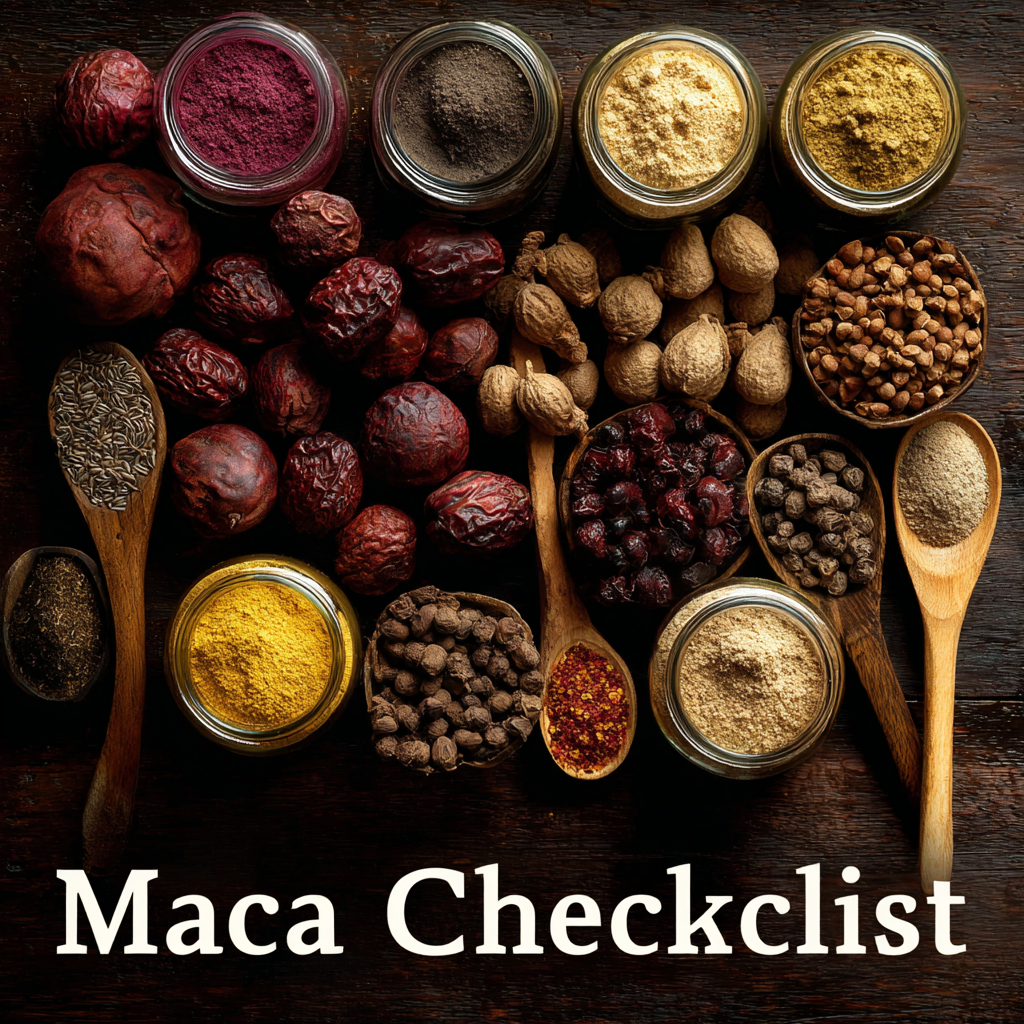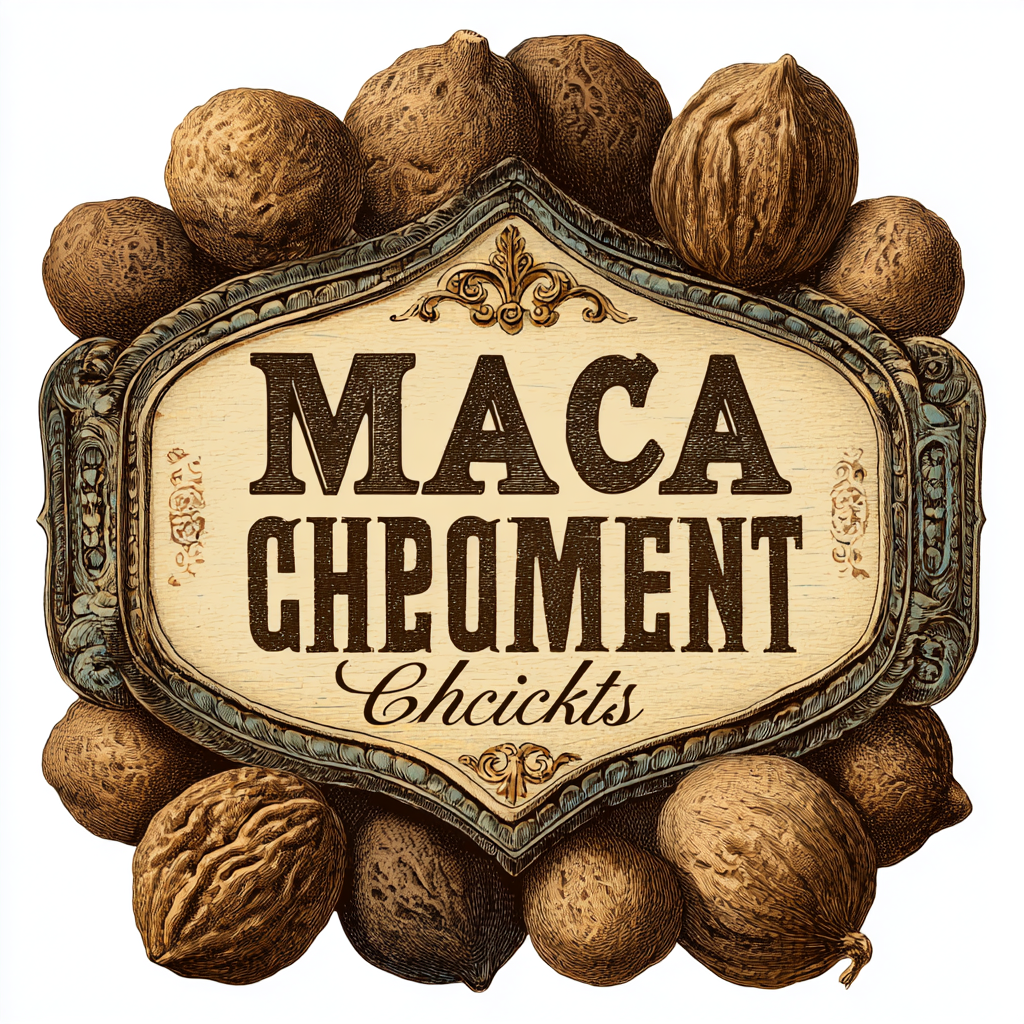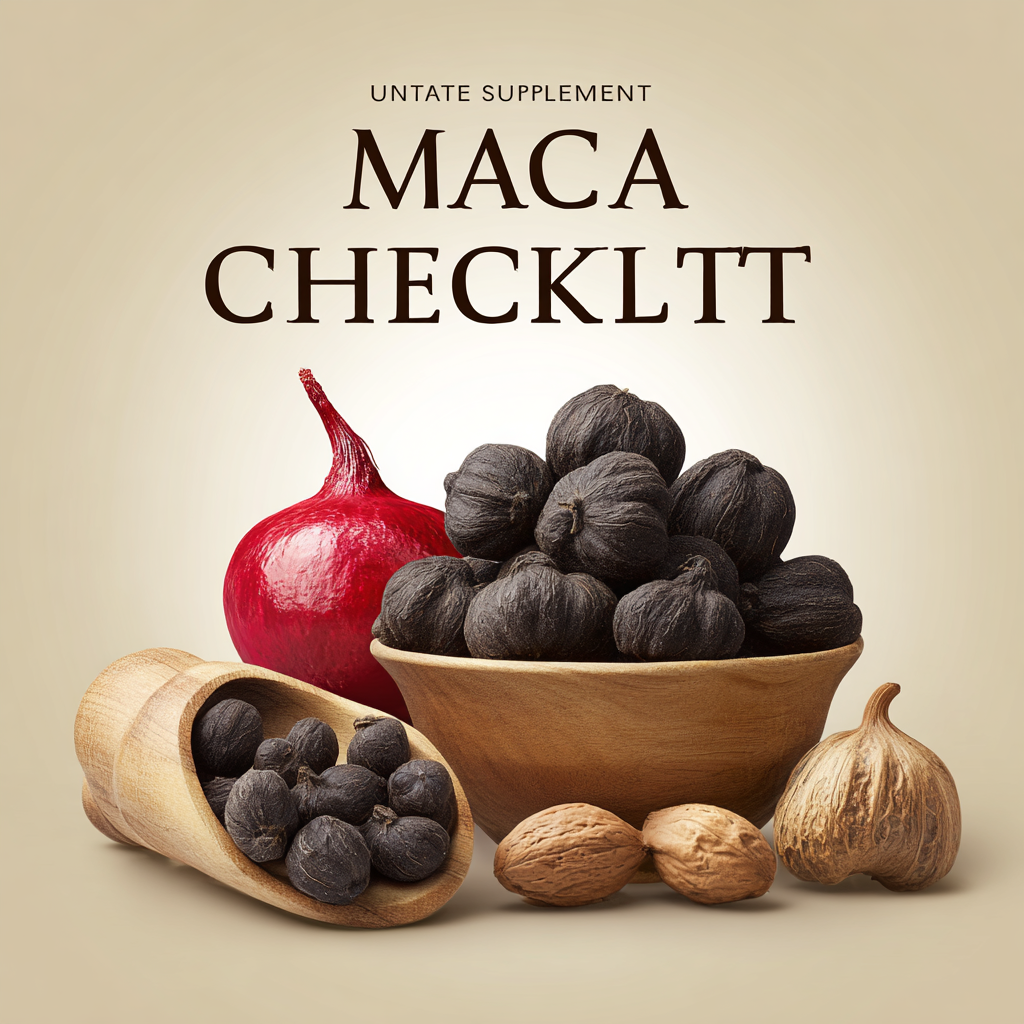
-
Home
-
Products
-
About US
-
FAQ
-
News
-
Tips
-
Contact Us
Leave Your Message
- Phone
- E-mail
- WhatsApp
- WA Business



In recent years, the demand for natural dietary supplements has surged, with maca supplements gaining significant attention for their purported health benefits. According to a report by Grand View Research, the global maca market was valued at approximately USD 16.4 million in 2021 and is expected to grow at a compound annual growth rate (CAGR) of 6.7% through 2028. This growth is driven by increasing consumer awareness of wellness and the rising popularity of superfoods. Maca, a root vegetable native to Peru, is celebrated for its potential to enhance energy, improve mood, and support hormonal balance. With the plethora of maca supplements available globally, it becomes imperative for consumers to carefully evaluate their options to ensure they are sourcing high-quality products. This ultimate checklist aims to guide you in selecting the best maca supplement, providing essential criteria that prioritize safety, efficacy, and sustainability.

When sourcing the best maca supplements globally, it’s crucial to understand the importance of import and export certifications. These certifications not only ensure the authenticity and quality of the product but also protect consumers from potential health risks associated with contaminated or substandard supplements. Certifications such as GMP (Good Manufacturing Practices), USDA Organic, and ISO standards are indicators of a product's credibility, and they reflect a company’s commitment to maintaining high production standards.
Moreover, knowing the specific import regulations of your target market is essential. Different countries have varying requirements. For instance, the EU may impose stricter guidelines compared to the US regarding herbal supplements. Ensuring compliance with these regulations not only facilitates a smoother import process but also enhances consumer trust in your product. Therefore, when evaluating potential suppliers, always request documentation that verifies their certifications and assess their compliance with international trade standards to guarantee a reliable and safe maca supplement for your customers.
| Certification Type | Description | Importance | Region of Validity |
|---|---|---|---|
| FDA Approval | Indicates that the product meets safety standards set by the U.S. Food and Drug Administration. | High - Essential for market entry in the U.S. | United States |
| GMP Certification | Confirms that the products are manufactured according to Good Manufacturing Practices. | High - Ensures quality and consistency. | Global |
| Organic Certification | Indicates that the product was produced without the use of synthetic fertilizers or pesticides. | Medium - Important for health-conscious consumers. | Global |
| Non-GMO Certification | Confirms that the product does not contain genetically modified organisms. | Medium - Appeals to specific market segments. | Global |
| Kosher Certification | Indicates that the product meets Jewish dietary laws. | Low - Niche market appeal. | Global |
When sourcing the best maca supplements globally, understanding the key regulatory standards is crucial in ensuring product quality and safety. Different regions have distinct regulations governing dietary supplements, which can significantly impact the quality of maca products. For instance, in the European Union, strict guidelines ensure that maca supplements are not only safe but also accurately labeled, providing consumers with essential information about ingredient sources and nutritional content. These regulations help in minimizing the risks associated with adulterated or substandard products.
In the United States, the Food and Drug Administration (FDA) does not require pre-market approval for supplements, but manufacturers must adhere to Good Manufacturing Practices (GMP). This means that to be considered a quality maca supplement, products should be produced in sanitary conditions and must be deemed free of contaminants. Importantly, third-party testing by independent organizations can further validate the quality and efficacy of maca products, providing additional assurance to consumers. It is vital for buyers to look for certifications or approvals that confirm compliance with these international standards and guarantee the authenticity of the maca they are purchasing.
When sourcing the best maca supplement globally, it's essential to navigate the certification process effectively. Certification ensures that the product meets quality standards and complies with regulatory requirements, which can vary significantly by region. For instance, in India, the Bureau of Indian Standards (BIS) mandates certification for specific health and wellness products, emphasizing quality and consumer safety. A step-by-step approach is crucial: begin by identifying regulated sectors and understanding the required documentation for certification.

Tips: Always check for third-party testing results to ensure the product's potency and purity. Certification often includes laboratory analysis, which can help validate the supplement's claims. Engage with suppliers who have a track record of transparency regarding their sourcing and manufacturing practices.
Moreover, understanding local regulations helps in avoiding potential pitfalls that could arise from non-compliance with certification requirements. Additionally, assess the supplier's certifications and track their compliance history. This diligence not only guarantees that you are procuring a high-quality product but also enhances your market reputation by ensuring consumer trust in your offerings.
When sourcing the best maca supplement, understanding the importance of supply chain transparency is crucial. Transparent supply chains not only ensure the quality and authenticity of maca but also support ethical practices that respect both the environment and the communities involved in its cultivation. Consumers are increasingly demanding more information about where their supplements come from, how they are sourced, and the impact of these processes on the local ecosystem and economy.

When sourcing the best maca supplement, evaluating third-party lab testing and certifications is crucial to ensure the product's quality and potency. Third-party testing serves as an unbiased verification of the supplement’s ingredients and their concentrations. It ensures that the maca you are choosing does not contain harmful contaminants or fillers that could compromise its natural benefits. Look for supplements that display results from credible laboratories; these typically provide certificates of analysis that confirm the presence of maca’s key properties and validate its nutritional claims.
Certifications play an equally important role in identifying high-quality maca supplements. Certifications such as USDA Organic, Non-GMO Project Verified, and others signify that the product meets established safety and quality standards. These labels not only reflect commitment to quality but also to sustainable and ethical sourcing practices. When assessing different maca products, prioritize those that are certified by recognized organizations. This level of scrutiny not only assures you of the supplement's integrity but also contributes to supporting responsible farming and production methods that benefit both the environment and local communities.